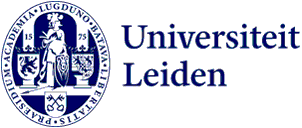
Jenneke van der Wal wins Ammodo Science Award: ‘Especially unstudied languages contribute to theory building’
For associate professor Jenneke van der Wal, things have been good recently. After being awarded a Vici and Una Europa grant, she has now also received an Ammodo Science Award. ‘It is a nice confirmation that I am doing valuable work.’
Fine, thought Van der Wal when the scientific director asked her if she could be nominated for an Ammodo Science Award. I’m not likely to win anyway.
But she did. On 7 May, she will be awarded the prize for her research on how languages convey information and what that tells us about the way people think and communicate. Van de Wal focuses specifically on African languages. 'About 30% of all languages are spoken in Africa. If you want to understand human language capabilities and the wide variation in them, you can't leave these languages out.'
Especially unstudied languages contribute
Nonetheless, for a long time linguists – who were often European - were mainly interested in English and other neighbouring languages. Van der Wal: ‘Chinese was added later and now, fortunately, a lot of people are working on African languages. So I am certainly not the first, but the fact remains that most linguists focus on the big, well-known languages, while it’s the lesser-known languages that can make a major contribution to theory building.'
Van der Wal immersed herself in the Bantu languages, which are spoken in large parts of southern Africa. Among other things, she discovered that speakers of these languages convey new or surprising information differently from the way it is done in many other languages. Where in Dutch, for example, we need to add stress - YOU did it - speakers of Bantu languages can incorporate this information directly into the verb form or word order.
Incredibly fascinating
Van der Wal: ‘I find it fascinating how you acquire all these language rules while growing up, perhaps never thinking about them, but constantly applying them. As a linguist, I try to make that implicit grammar explicit. In doing so, I am particularly interested in what linguistic strategies the speaker uses to manage the attention and understanding of the people they’re speaking to, and how those strategies in turn become a fundamental part of the grammar. I want to know how this happens in different languages. When I think about that, I find it incredibly fascinating.'
The Ammodo Science Award will enable her to keep that fascination going in the coming years. ‘The nice thing about this award is that I am free to choose how I use the money for my research,’ Van der Wal explains. ‘I can link it to one of the other projects already in process, for example by taking on a PhD student.’
Collaboration
She herself is especially happy with the recognition. 'In academia, you are pulled in all directions, which can sometimes make you feel that you never do things well enough. Being awarded a grant, a research project and this prize in a short time is a nice confirmation that I am doing meaningful work, especially in these times when African languages in the Netherlands are under pressure.'
At the same time, all this praise sometimes makes her a little uncomfortable. Van der Wal: ‘Firstly, I stand on the shoulders of predecessors who have analysed a huge diversity of languages and proposed theoretical models. Second, I have collaborated with all kinds of people in recent years, from linguists in East Africa to neurolinguists and my colleagues at LUCL. The award may be individual, but in research we need each other.'
More information about Van der Wal's research is available on the Ammodo-website.
